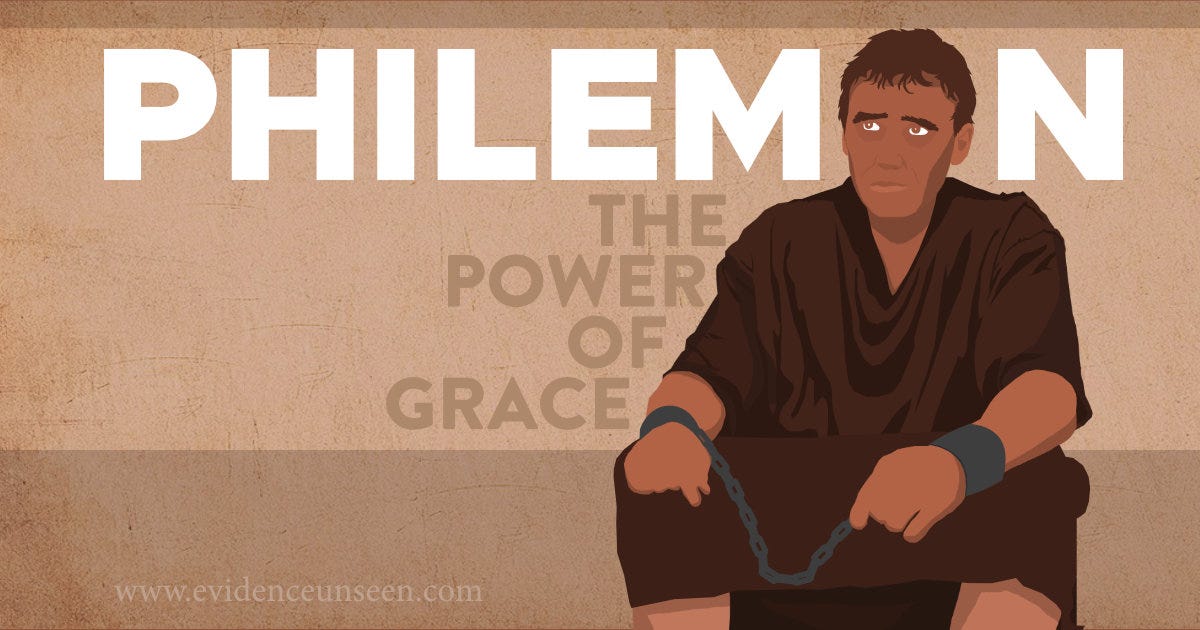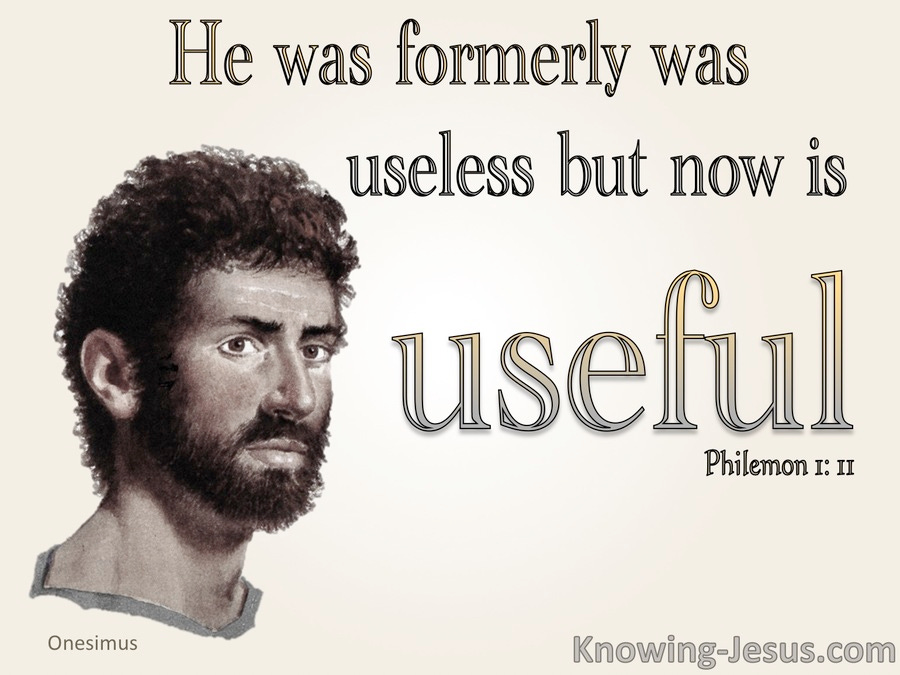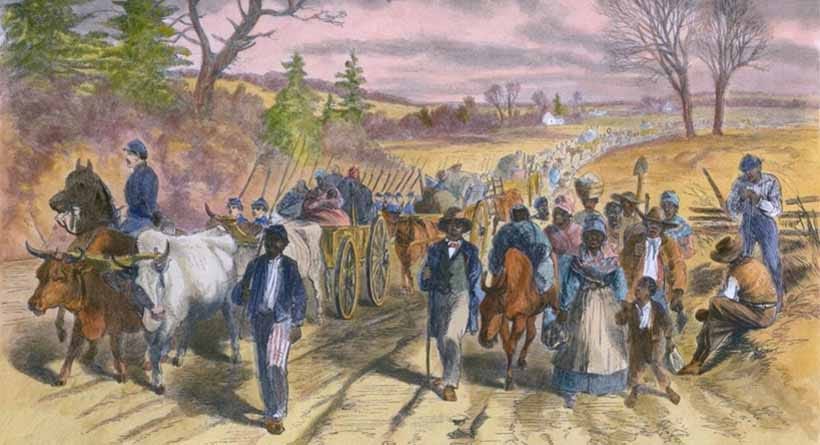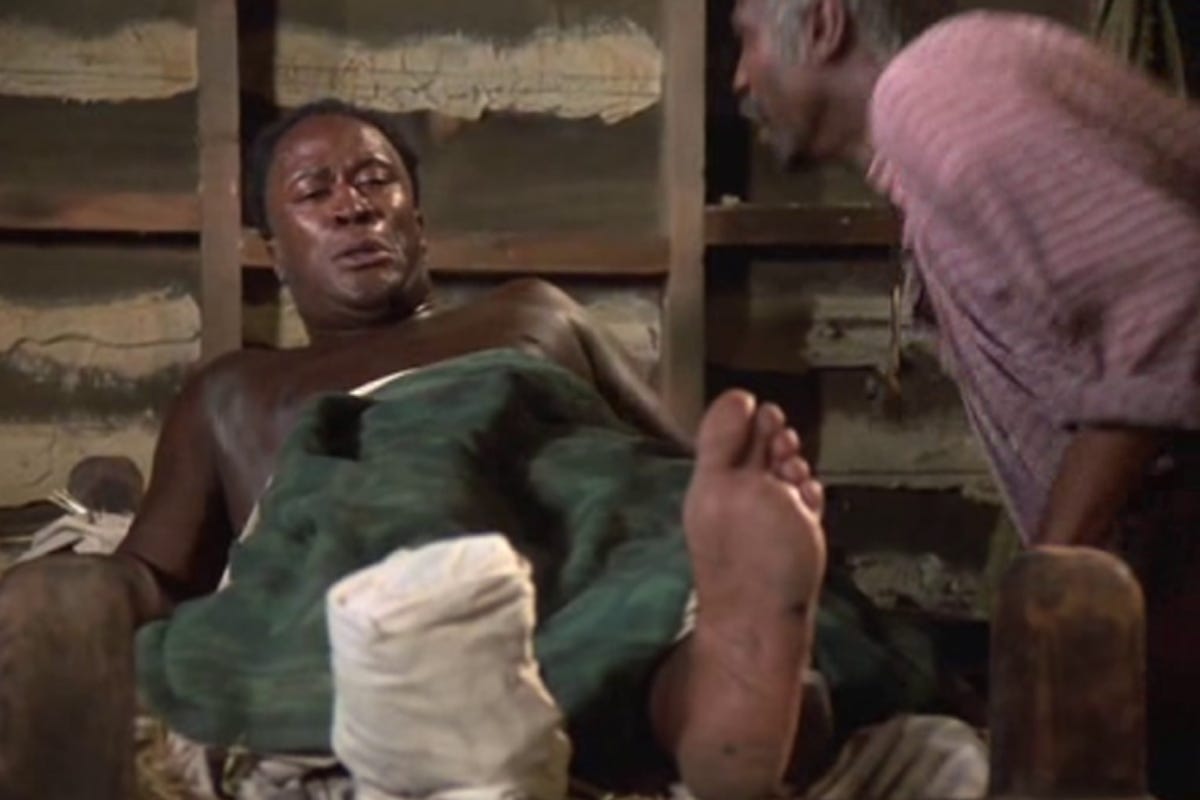Why Do You Do It?
An exposition of Philemon
Why do you go to church?
Why do you give?
Why were you be baptized?
Why do you read your Bible?
Why do you read this article and listen to the message?
I’ve heard preachers whip their people to give more, telling them they have a duty to give a 10% minimum and then always more. They don’t care why people give, only as long as they can get them to pry open their wallets and do it. When I was about 12, I was pressured to be baptized. I did it because I felt I had to. It meant nothing to me. I later got genuinely baptized after I genuinely believed.
Do motives matter? Does it matter why I do something or only that I do it?
Does it matter if you go to church because you love the Lord, want to hear His Word and worship Him or if you feel it is your grim religious duty you’ve got to do once a week? Does it matter why you give or were baptized, only as long as you did it?
To hear how motives matter, listen:
The Salutation
Paul identifies himself “as a prisoner for Christ Jesus” revealing the humble spirit this letter is written in. The church in Colossae, or part of it, gathered in Philemon’s home. So, Philemon was probably wealthy and an elder in the church.
The Supplication
Paul is praying that Philemon’s sharing “may become effective” or working, energized so that people will know “every good thing” Christ gives. Philemon probably thinks Paul means that other people will know “the good thing” when Philemon shares his faith but he really means that Philemon himself will know the good thing that he should do.
Supplication: may Philemon’s sharing give revelation of every good thing we have because of Christ.
For more on the prayer that our sharing of our faith be effective, click on the YouTube video above.
The Suggestion
Paul says he could order him to do what he want him to do but “because of love” he just makes a suggestion. Paul appeals for “My child . . . Onesimus?” To Philemon, Onesimus is a bad slave who stole from him. His name means, literally, “useful” but “Formerly he was useless to you” (11.)
He was apparently caught and put in prison where he met Paul. Paul shared the gospel with him and he believed. “Now he is indeed useful to you and to me.”
The right thing is to free him and let him go back to help Paul. Then why doesn’t Paul just order Philemon to do it?
For more on how Paul suggests that Philemon free Onesimus, click on the YouTube video above.
Slavery
The kind of slavery we see here is different than what we Americans think of as slavery. It wasn’t race based. So, race is not an issue here. Under some economic conditions some kind of slavery would be inevitable. If unemployment was high and there was no welfare or charities, people would be desperate enough to agree to become slaves. Our situation now where we don’t have slaves and only the wealthy can afford to have servants is only the result of our widespread prosperity.
I was a teaching assistant for Robert W. Fogel who won the Nobel Prize for his research into slavery. See: “A Secular Jew Makes a Surprising About Christians and American Slavery.”
The Bible, even in the Old Testament, mitigated and softened slavery, regulated it so it could never grow large and eventually planted the seeds that undermined slaver. “Man stealing” — kidnapping people to make them slaves — was illegal and punished with death (Exodus 21). Merely having a slave who had been originally enslaved by man-stealing was also punishable by death, even if you weren’t the one who did it, even if you bought a slave from someone else who abducted him. So, in Israel the only people who were slaves were either people in debt who had sold themselves into it to pay off their debt or prisoners of war who would have been killed otherwise. Also, slaves were offered their freedom every seven years. Every 50th year, “the year of jubilee, land was returned to the original owners, debts were cleared, and all slaves were freed. The poorest were allowed a reset. So, there would be no intergenerational slavery.
Further, there were laws protecting slaves, like if a slave-owner permanently hurt a slave, like knocking out a tooth, or like from Roots, chopping off part of a foot, the slave was freed. No other society in ancient history had laws like that to soften and curtail slavery. Of course, that’s because Israel’s laws were inspired by God. The seed that ended slavery was planted in Leviticus 19:18, “Love your neighbor as yourself.”
For more on how the Bible mitigated, softened, curtailed, and planted the seeds that ended slavery, click on the YouTube video above.
Contrary to our “chronological snobbery,” slavery actually got worse from Roman times to early America. John Wesley wrote that American slavery was “the vilest that ever saw the sun.”
We want you to be generous from the heart, not just “pay a tithe,” like it’s a bill. We want you to come to join our church because you love the Lord and His body, not because it’s your religious duty or your habit you learned when growing up. Paul gives a suggestion because he wants Onesimus to free Onesimus out of love. He wanted Philemon’s “goodness” not to “be by compulsion but of your own accord.”
You should go to a Biblical church, join as a member, sing psalms and worship songs, listen eagerly to the preaching of the Word, give, pray, read the Bible, deny yourself because of your love for Jesus. You shouldn’t have to be commanded, cajoled, manipulated, threatened, promised material blessings to do it. You should do it out of love.
Paul says there’s an ultimate reason Onesimus ran away and was caught. It had a divine purpose in it because beyond the human choices — like Onesimus’ intention to do evil, God super-intended it for His purposes. God “works all things according to the counsel of His will” (Ephesians 1:11.) Thus we see the sovereignty of God even in Philemon
In the next generation the leader of the church in Ephesus was named Onesimus.
For more on how God wants our heart, click on the YouTube video above.
Why should you go to church?
Why should you give?
Why should you be baptized?
Why should you read your Bible?
Why should you deny yourself for Jesus?
For love’s sake. Because you love the Lord with all your heart. Because you want to. It’s your passion. Because from the bottom on your heart, in your spirit, that’s what you desire more than anything else. Because you cry
Motives matter. It matters why you do what you do. God doesn’t just want your obedience, He wants your heart. He doesn’t need your money. He wants your heart to be generous, like He is who gave us His Son.
He wants your spirit to be amazed by grace, so you obey out of love.
To hear more about Philemon click on the YouTube link above.
Covenant Reformed Baptist Church is Danville’s/Caswell County’s Reformed Church.












